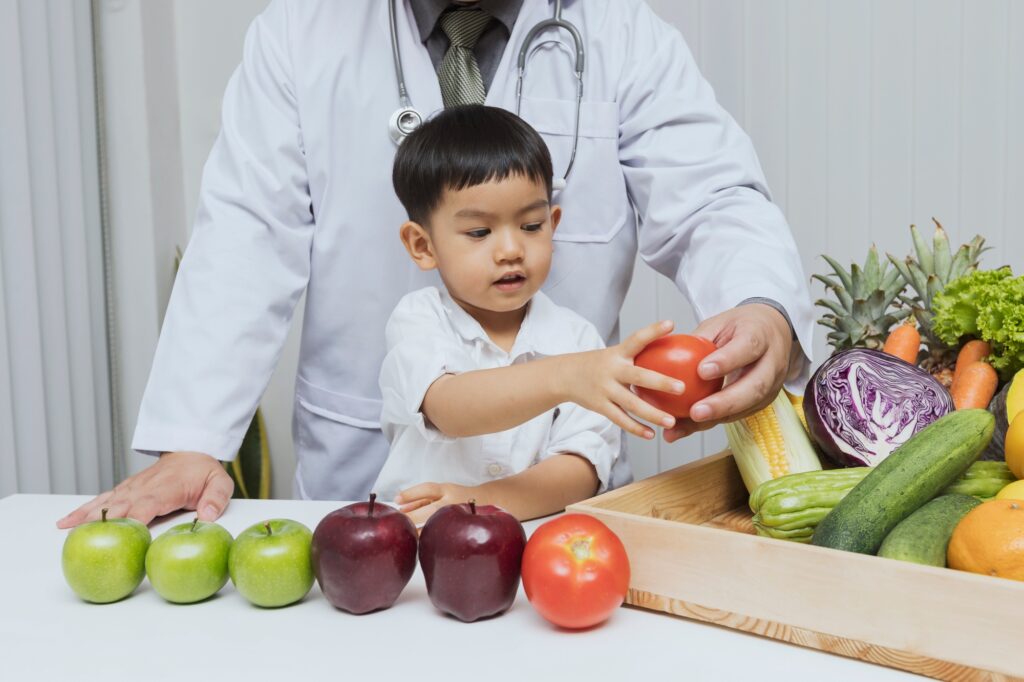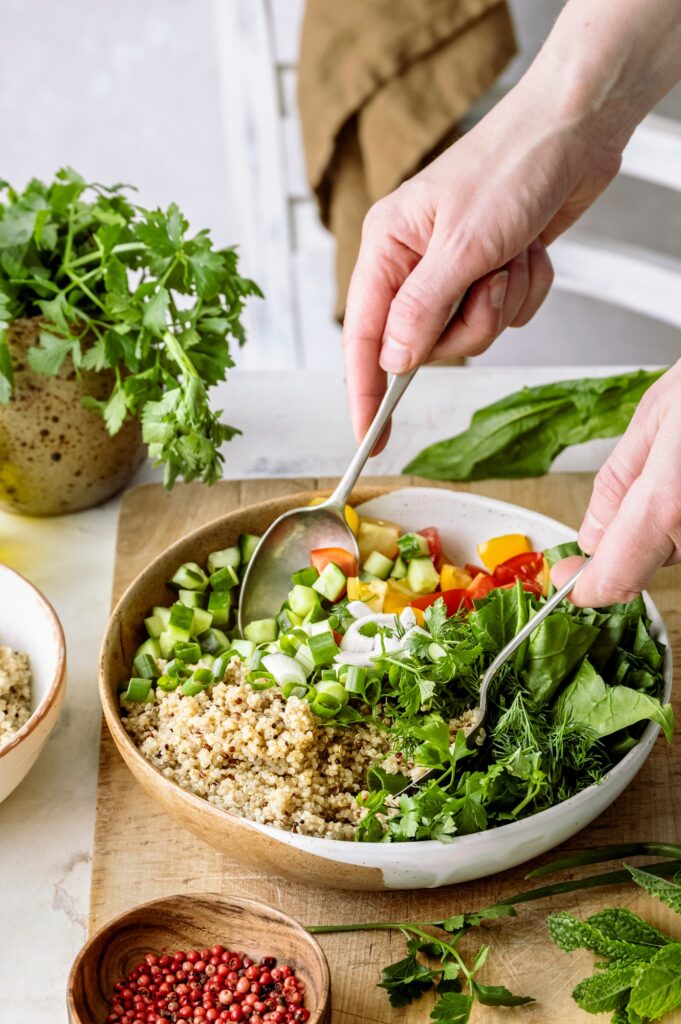
A kidney-friendly diet is essential for maintaining optimal kidney function and overall health. It typically involves controlling the intake of sodium, potassium, and phosphorus, as these minerals can affect kidney performance. By managing these elements, you can help reduce the stress on your kidneys, potentially slowing the progression of kidney disease and improving your quality of life. Here are some key elements to consider:
- Sodium: Reducing sodium intake can help control blood pressure and reduce fluid retention, easing the burden on your kidneys. High sodium levels can cause your body to hold onto extra water, which can increase blood pressure and make your heart and kidneys work harder. It’s crucial to read food labels and choose low-sodium options whenever possible.
- Potassium: While potassium is important for muscle and heart function, too much can be harmful for those with kidney issues. Managing potassium intake is important, as excess levels can lead to heart complications. Opt for lower-potassium foods and monitor your intake with the help of a healthcare professional to ensure you’re getting the right amount.
- Phosphorus: High phosphorus levels can lead to bone and heart problems, so it’s important to manage phosphorus intake. Many processed foods contain added phosphorus, so it’s wise to prepare meals using fresh ingredients. Discuss your phosphorus needs with a dietitian to create a balanced meal plan that suits your health needs.
Personalized Nutrition Guidance by Kidney MD
At Kidney MD, we believe that food is powerful medicine—especially when it comes to kidney health. That’s why we offer personalized dietary consultations tailored to your specific stage of kidney function. Our team works closely with registered dietitians to help patients understand how to manage sodium, potassium, and phosphorus levels through delicious, kidney-friendly meals. Whether you’re newly diagnosed or managing chronic kidney disease, our approach empowers you to make informed food choices without sacrificing flavor.

Foods to Include in a Kidney-Friendly Diet
- Low-Potassium Fruits and Vegetables: Apples, berries, cabbage, and lettuce are great options. These fruits and vegetables not only provide essential vitamins and antioxidants but also ensure your potassium intake remains within safe limits. Incorporate a variety of these into your diet for a colorful and nutritious plate.
- Whole Grains: Quinoa, rice, and whole wheat pasta are excellent sources of fiber and energy. Whole grains help maintain steady blood sugar levels and provide lasting energy, which is crucial for overall health. They also offer essential nutrients that support digestive health and weight management.
- Lean Proteins: Chicken, turkey, fish, and egg whites are ideal protein sources. Protein is vital for maintaining muscle mass and supporting tissue repair. Choose lean cuts and prepare them using healthy cooking methods like grilling or baking to keep your meals low in fat.
- Herbs and Spices: Use these to flavor your dishes instead of salt. Fresh herbs like basil, cilantro, and parsley can enhance the taste of your meals without adding sodium. Experiment with different spice blends to discover exciting new flavors that make your dishes enjoyable and kidney-friendly.
Educational Support for Kidney-Safe Cooking
Kidney MD goes beyond treatment by equipping patients and their families with the tools they need to succeed in everyday life. We offer workshops, recipe handouts, and digital resources that make kidney-safe cooking easy and enjoyable. From heart-healthy proteins to flavorful, low-sodium seasonings, we guide you on how to build balanced meals that support your health goals. These resources are perfect companions to recipes like our berry quinoa parfait or herb-crusted salmon featured in the blog.
Kidney-Healthy Recipes
Breakfast: Berry Quinoa Parfait
Start your day with a nutritious and satisfying breakfast that’s gentle on your kidneys. This berry quinoa parfait combines protein-rich quinoa with antioxidant-packed berries, making it an ideal start to your day.
Ingredients:
- 1 cup cooked quinoa
- 1 cup mixed berries (strawberries, blueberries, raspberries)
- 1 cup plain Greek yogurt
- 1 tablespoon honey
- 1/4 teaspoon vanilla extract
Instructions:
- In a bowl, mix the Greek yogurt, honey, and vanilla extract. This mixture provides a creamy and slightly sweet base for your parfait.
- Layer the quinoa, yogurt mixture, and mixed berries in a glass or bowl, creating a visually appealing dish.
- Repeat the layers until all ingredients are used, ensuring an even distribution of flavors.
- Serve immediately and enjoy this refreshing start to your day! This parfait is not only delicious but also packed with nutrients to fuel your morning activities.
Lunch: Grilled Chicken and Veggie Bowl
A flavorful and nutritious lunch option packed with protein and healthy vegetables. This grilled chicken and veggie bowl is perfect for a midday meal that keeps you energized without overwhelming your kidneys.
Ingredients:
- 2 boneless, skinless chicken breasts
- 1 tablespoon olive oil
- 1 teaspoon dried oregano
- 1 teaspoon garlic powder
- 1 zucchini, sliced
- 1 bell pepper, sliced
- 1 cup broccoli florets
- 1/2 cup cooked brown rice
Instructions:
- Preheat your grill or stovetop grill pan over medium-high heat to ensure even cooking.
- Brush the chicken breasts with olive oil and season with oregano and garlic powder to infuse them with flavor.
- Grill the chicken for 5-7 minutes on each side or until fully cooked, ensuring the juices run clear.
- In a separate pan, sauté the zucchini, bell pepper, and broccoli until tender, creating a colorful and nutritious vegetable medley.
- Serve the grilled chicken sliced over cooked brown rice and sautéed veggies for a complete and satisfying meal.
Dinner: Herb-Crusted Baked Salmon
This dish is rich in omega-3 fatty acids, which are great for heart and kidney health. Herb-crusted baked salmon is not only delicious but also supports cardiovascular function and reduces inflammation.
Ingredients:
- 4 salmon fillets
- 2 tablespoons olive oil
- 1 tablespoon lemon juice
- 1 teaspoon dried dill
- 1 teaspoon dried thyme
- Salt and pepper to taste (use sparingly)
- Lemon wedges for serving
Instructions:
- Preheat your oven to 400°F (200°C) to ensure even baking.
- In a small bowl, mix olive oil, lemon juice, dill, thyme, salt, and pepper to create a flavorful herb crust.
- Brush the salmon fillets with the herb mixture, coating them evenly.
- Place the salmon on a baking sheet lined with parchment paper to prevent sticking.
- Bake for 12-15 minutes or until the salmon is cooked through and flakes easily with a fork.
- Serve with lemon wedges and a side of steamed vegetables for a well-rounded and nutritious dinner.
Snack: Apple Cinnamon Oatmeal Bars
These bars are perfect for a healthy snack or a quick breakfast on the go. Apple cinnamon oatmeal bars provide a balanced combination of fiber and natural sweetness to keep you satisfied between meals.
Ingredients:
- 2 cups rolled oats
- 1/2 cup unsweetened applesauce
- 1/4 cup honey
- 1 teaspoon cinnamon
- 1/4 teaspoon nutmeg
- 1/2 cup chopped walnuts (optional)
Instructions:
- Preheat your oven to 350°F (175°C) to ensure the bars bake evenly.
- In a large bowl, mix the oats, applesauce, honey, cinnamon, nutmeg, and walnuts to form a cohesive mixture.
- Press the mixture into a greased 9×9-inch baking pan, ensuring an even layer.
- Bake for 20-25 minutes or until the edges are golden brown, indicating they are done.
- Let cool before slicing into bars, making them easy to grab and enjoy anytime.
Tips for Managing Kidney Health Through Diet
- Hydrate Wisely: Drink plenty of water, but be mindful of fluid intake if advised by your doctor. Staying hydrated is crucial for kidney function, but it’s important to follow medical advice tailored to your specific health needs.
- Control Portion Sizes: Eating smaller portions can help manage your nutrient intake. This approach aids digestion and prevents overloading your kidneys with excess minerals.
- Plan Your Meals: Meal planning can help you adhere to dietary restrictions and avoid unhealthy choices. By planning your meals ahead, you can ensure you always have kidney-friendly ingredients on hand and reduce the temptation to reach for processed foods.
For more detailed information on managing your diet with kidney disease, including tips from healthcare professionals and additional recipe ideas, the National Kidney Foundation offers a wealth of resources to support your journey.

Conclusion
Eating a kidney-friendly diet doesn’t have to be restrictive or bland. With these delicious and easy-to-make recipes, you can enjoy a variety of flavors while supporting your kidney health. Whether you’re dealing with kidney disease or just want to maintain healthy kidneys, these recipes are sure to become staples in your meal rotation. They are designed to be satisfying and nourishing, proving that a kidney-friendly diet can be both enjoyable and beneficial.
Comprehensive Kidney Care That Includes Diet
Your kidney care journey doesn’t stop at medical treatment—it includes lifestyle and nutrition too. At Kidney MD, our holistic approach ensures that every patient receives comprehensive care, including dietary support as a cornerstone of treatment. We recognize the importance of a customized meal plan in managing phosphorus and potassium levels, and our team is here to help you enjoy meals that are both safe and satisfying. With Kidney MD, you don’t have to navigate your diet alone—we’re with you every step of the way.
Remember, always consult with a healthcare professional or a registered dietitian before making significant changes to your diet, especially if you have kidney-related health issues. They can provide personalized guidance that considers your unique health needs. Enjoy these kidney-healthy recipes and take a step towards better health today! With the right information and delicious recipes, maintaining kidney health can be a rewarding and flavorful journey.

